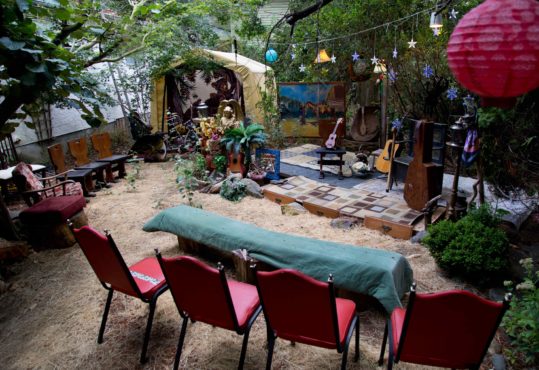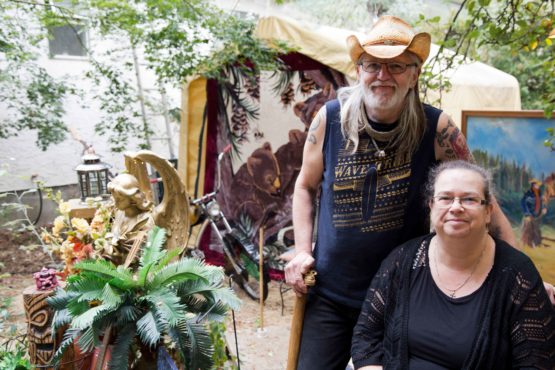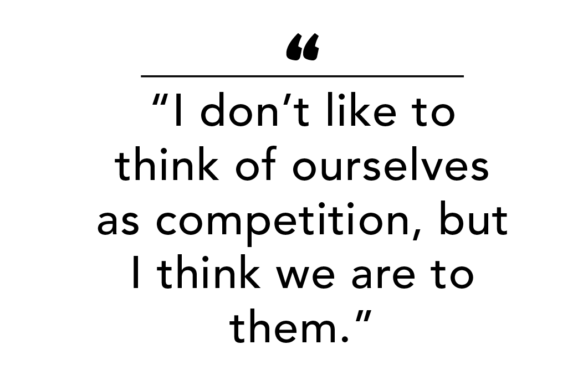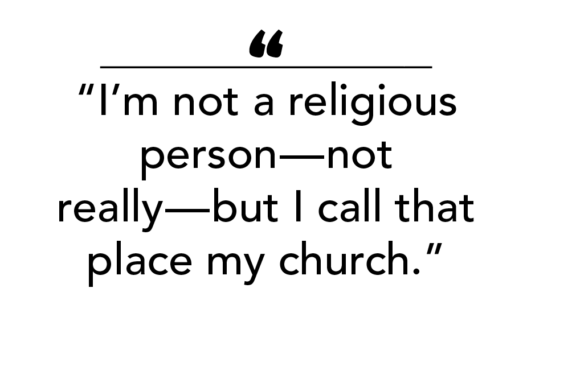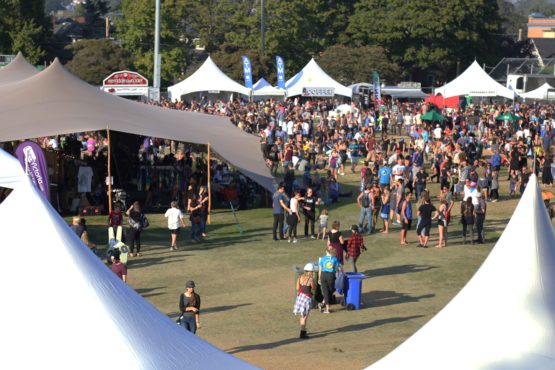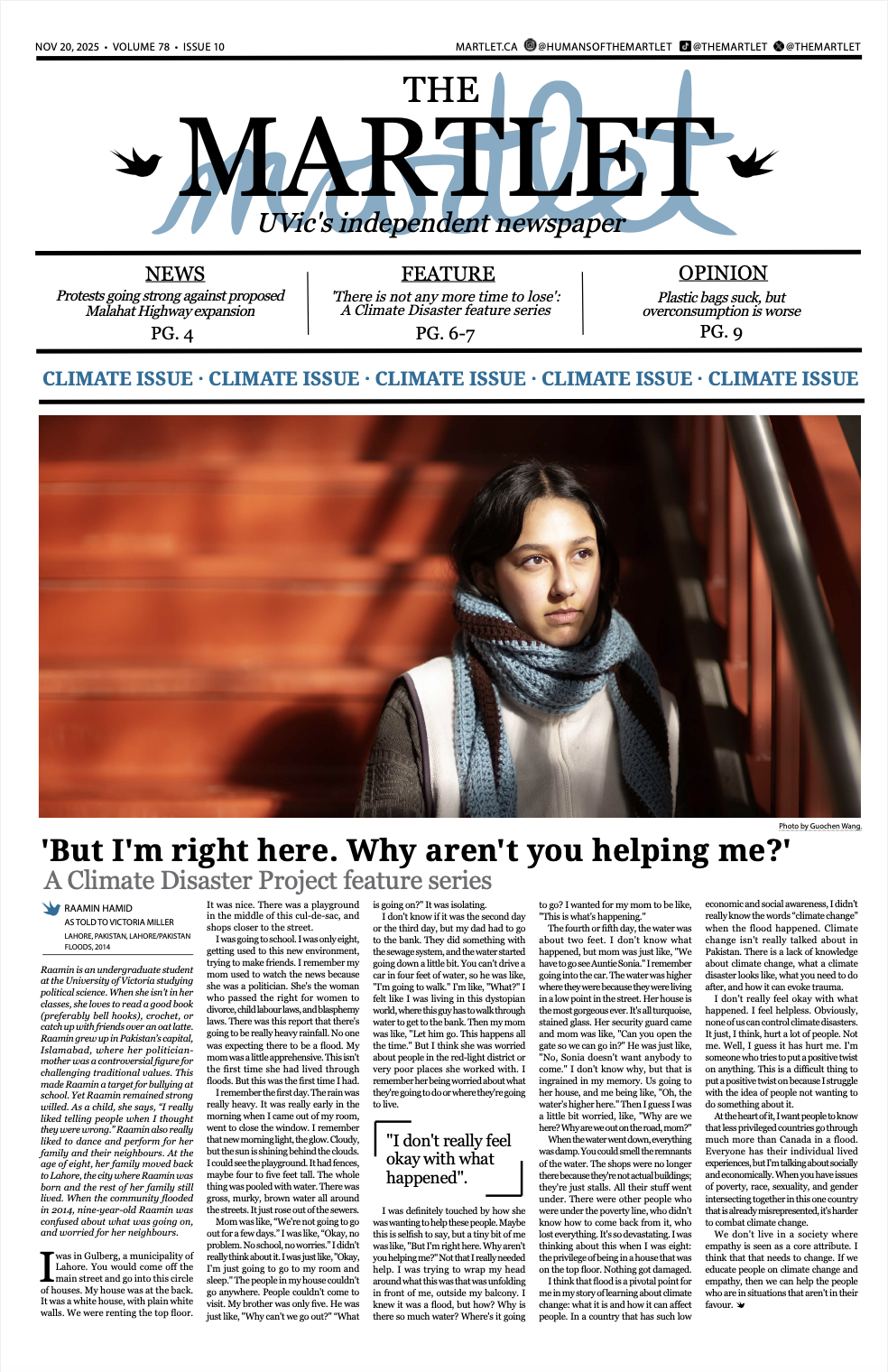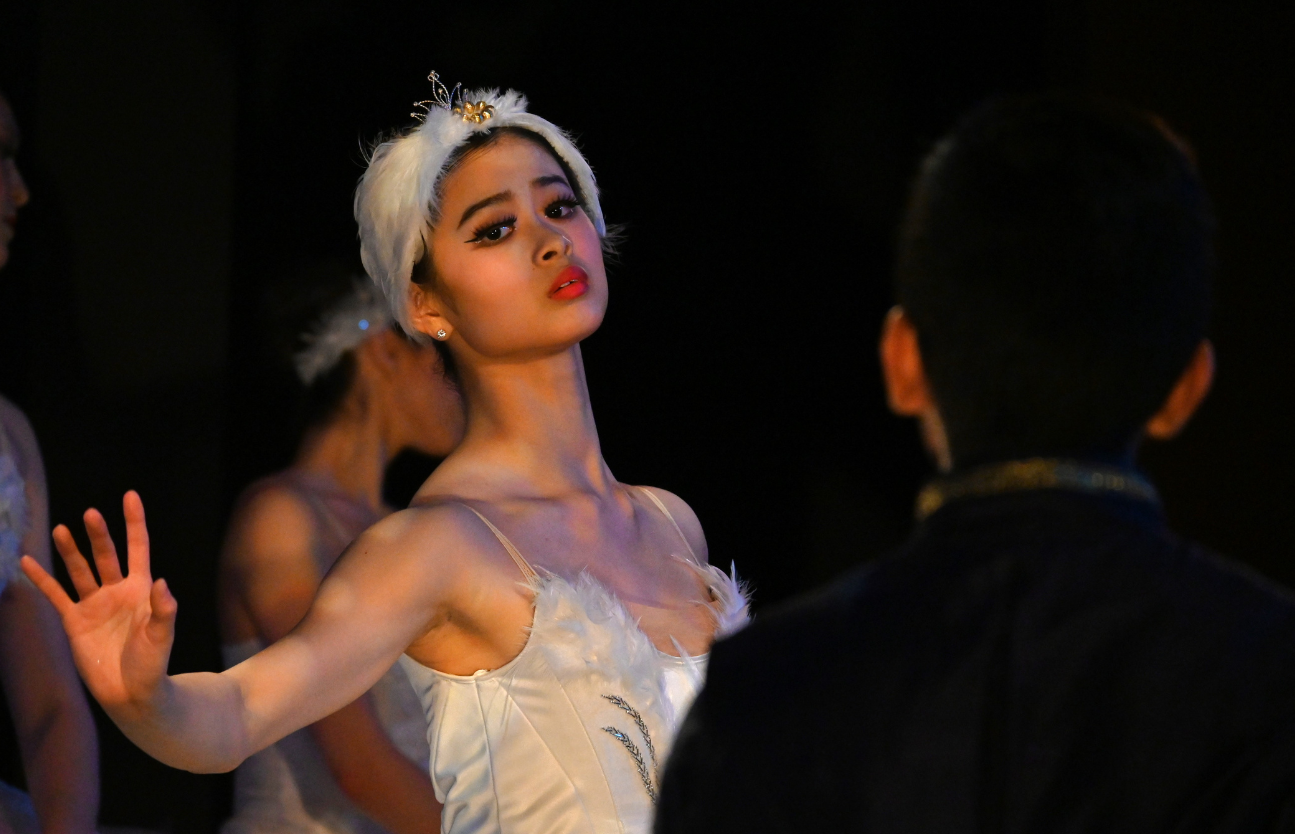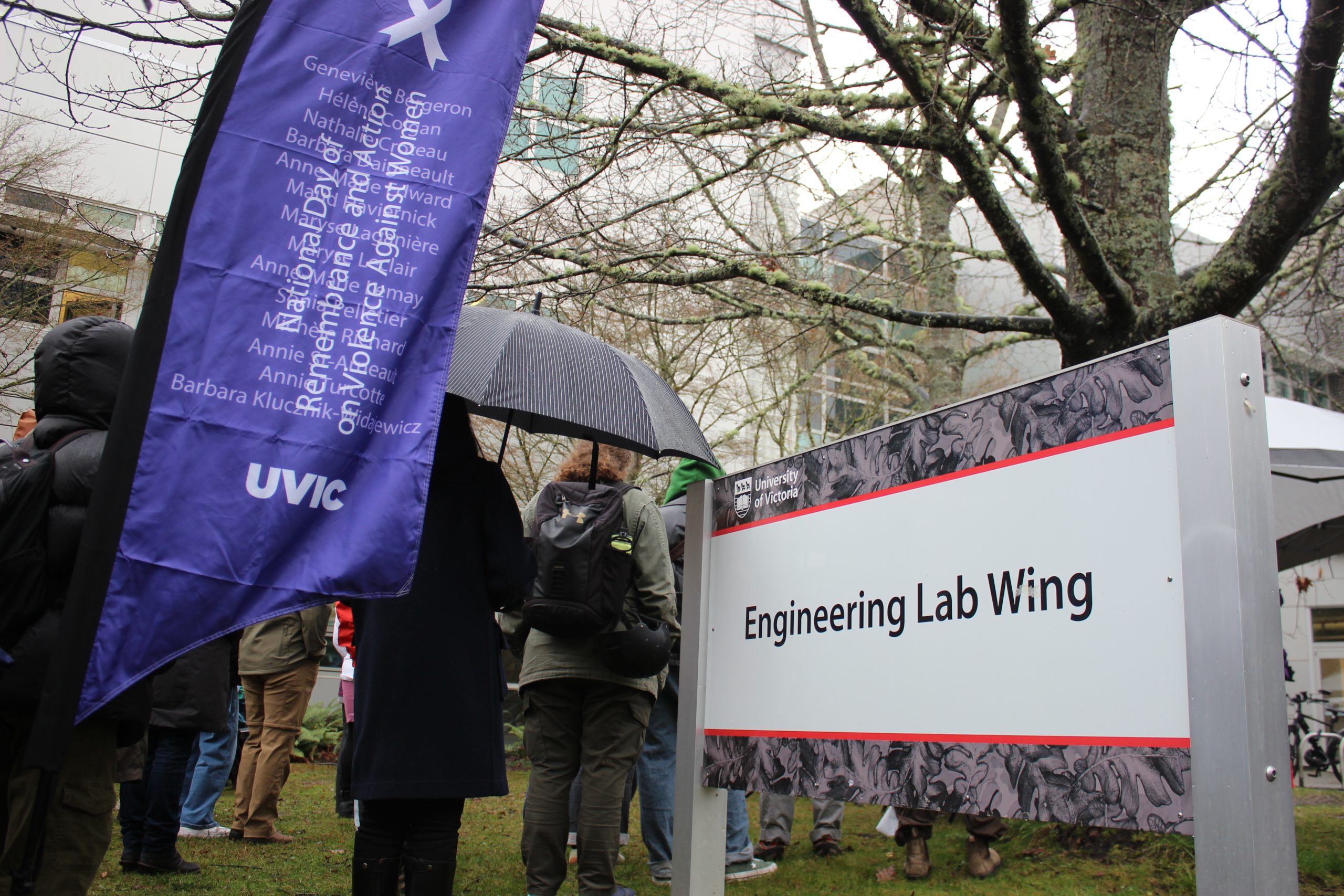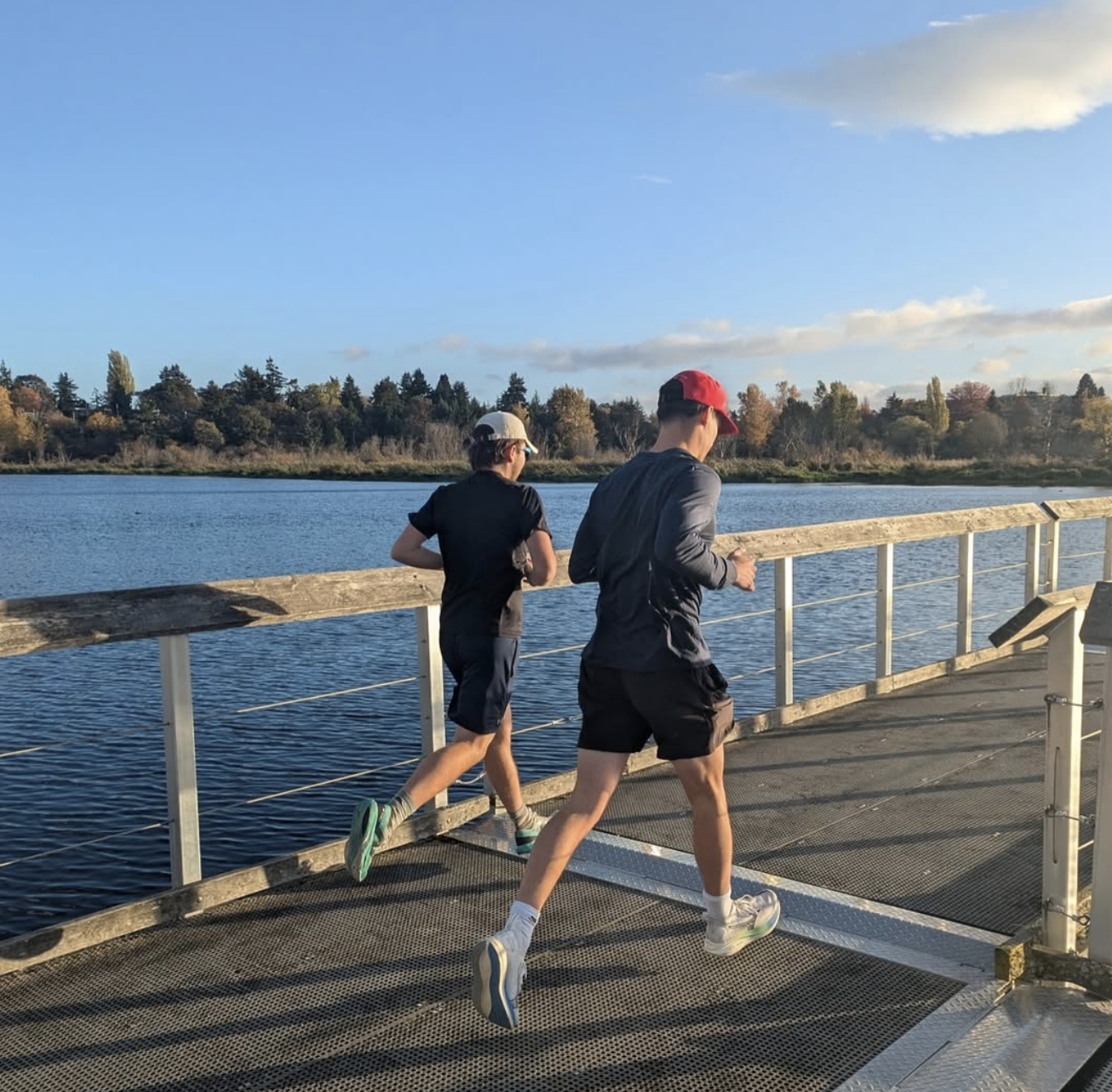More than just a couple of bucks in front of 12 people
Inside the Tim Hortons on Ravine Way, the line-up is brimming with Victorians clamouring for their midday double-double fix. Tom Mrnka, co-organizer of the Musical Garden house concert series, hunches in the cracked green vinyl of the booth. A beleaguered employee rattles past with a trolley filled with used mugs. Although it’s hard to hear Tom over the racket, I watch as his face creases like a scrapped piece of paper. Beside him is his wife, Andrea. I’m here to talk to them about Victoria’s house concert scene.
“I’m not a religious person — not really — but I call that place my church. There’s something that happens when you go into that house,” he says. “It’s Andy’s presence. He’s in the walls, and people who have been to that place? They can feel it.”
The place in question is House Concert B, a house concert venue nestled in the residential streets of Fernwood. The man referenced? Andy Briggs, head organizer of a variety of house concert venues and president of the non-profit Angels Chopper Bicycle Club AC/BC, an organization where children with physical disabilities are given the opportunity to craft their own bikes. Andy was recently diagnosed with a brain tumour.
Having met Andy five years ago, Tom and Andrea now run their own house concert series out of their home in Langford. They put on anywhere from five to eight shows per summer, padding their backyard with hay bales and a mixture of both found and donated chairs. Inside, the CDs and merchandise from every artist they have ever hosted hang on the walls. The entirety of the $20 entry fee goes directly into the musicians’ pockets.
“[Andy’s house concerts are] some kind of magic,” says Andrea.
“Yeah, some kind of magic,” Tom agrees. “It’s [Andy’s] love of music and people and — and everything. It’s all together in that house, and that’s why everyone’s so sad that he can’t do it anymore. So that’s why [Andrea and I] try to do as much as we can. We never used to have concerts inside our house but now we do, just because it’s a necessity. People need a place to play.”
Victoria venues
His comment strikes a chord. The Copper Owl, hailed as one of Victoria’s prime concert venues, costs musicians a room fee of $200 to cover sound and doors. One of the Gorge’s favourite open mic spots, My Bar and Grill, closed its doors in 2017, even after changing hands. Classic Guitars on Fort and Gordie’s Music were two popular music stores that were also forced to shut down recently.
“It’s all about the money now,” Tom says. “I mean, the way it used to be was that musicians would be invited to go play with a band [by a venue]. They’d get paid. They’d get free food. Free drinks. They’d get treated like somebody who was actually working there. Nowadays, the venues are getting the musicians to pay to play there. [Musicians often] don’t get a piece of the bar. They don’t get free tickets for their guests. They get no benefits at all, and all they get for it is meagre ticket sales.”
Morgan Brooker, affiliate of Atomique Productions and organizer of the annual summer Breakwater Barge series, puts an optimistic spin on Tom’s sentiments. “[The music scene] always ebbs and flows. When I first moved to Victoria, Steamers was the place to see music, and then that closed down. There was a little lull where there wasn’t a lot of music.
“It feels like if there’s a hole in the industry in Victoria, that something else will come in and take its place.”
Morgan cites Vinyl Envy as a venue that has filled a space for smaller up-and-coming-bands.
On whether or not house concerts pose a threat to increasingly expensive formal venues, Morgan is adamant that it’s not a competition. “I personally love house concerts. I do band management as well and it gives an opportunity for me to send some of my acts into other cities where they may not have a following and may not be at the level where they could make money for a promoter to take a chance on them . . . and house concerts a lot of times have these built-in crowds, so it’s an amazing thing.”
He continues, “There used to be a venue called House Concert B run by a guy named Andy Briggs and he was fantastic — he brought so many different styles of music, and he has a built-in crowd where people would come and see the music regardless of who it was. He’s still doing a couple shows here and there at Tectoria. [He did a show with] Ocie Elliott . . . and had 200 seats sold out.”
Andy’s impact
In an age where the number of music-only venues are dwindling, Andy is revered as somewhat of a local legend for having frequently offered up his own home as a concert space.
“I don’t know [Andy] personally, but he has such a strong reputation in Victoria,” says Kelly Favro, promotions manager for The Loft pub and organizer of the Thursday Night Jam at The Loft. “I’ve heard from a lot of local bands the reputation that he has, you know what he’s done for the scene. He’s humble and he’s smart and he really is passionate.”
That veneration is shared widely amongst Victoria’s music community: at the end of May, in the wake of Andy’s condition becoming public, a fundraiser was set up by Andy’s friends to offer financial support in the aftermath of his life-saving surgery. Cross-country talent — such as Tom Hooper from the popular ‘80s band Grapes of Wrath, and award-winning artist Tal Bachman, best known for his ‘90s hit “She’s So High” — performed free of charge for Andy’s cause.
Andy’s ripple effect is also felt in the office of the non-profit organization Soap For Hope. Having worked with him for a year for fundraising purposes, Bryce Reynolds, program coordinator, smiles at the mention of Andy’s name.
“When you work for a non-profit you kind of have to come up with cool and innovative ways to fundraise and spread awareness about what you’re doing, and so with concerts there’s this big network of people in Victoria—there’s a big music scene,” says Bryce. “A lot of people are involved in music and really passionate about it, so we kind of felt that it was a good partnership by going with Andy, since he has those connections and can bring those people here.”
Bryce continues, “We’ve had everything from teenagers up to people in their seventies. It’s a full spectrum of people coming out; it’s just whoever likes the artist, and the artists that Andy brings in appeal to everybody because they’re really talented . . . It was fun partnering with Andy because he’s passionate about it . . . I like the concerts because I can hang out with Andy and he takes all the pictures, and every intermission I do a little speech on Soap For Hope. When I think back to [past concerts], it’s just me and Andy hanging out in the office chatting . . . and just enjoying the live music.”
Can house concerts pose a challenge?
Back in Tim Hortons, Tom talks animatedly with his hands. “A lot of [venues] appreciate what we do but would rather we not do it because we’re competition. We’re free competition. We’re here to promote the music and not our own business, since there’s no business in this for us aside from our love of music, the people, and the community. In a sense we are competition to them because a band’s either going to play at our place and walk away with $1 200 to $1 500 or play at [a larger venue] and walk away with $300. I don’t like to think of ourselves as competition, but I think we are to them.”
However, Adam Duron, operations manager for Atomique Productions, disagrees. “I don’t see it as really competitive on a scale basis. If you’re talking about those house concerts compared to some of the shows we put on at Lucky Bar — yeah, sure, we may lose a couple people, but I don’t think that it’s significant enough for it to be considered competition.”
Atomique’s partnership with musicians has been brought into question before. An out-of-province band who previously performed at Rifflandia — but who wished to remain anonymous for this article — verified that they had been offered almost no financial compensation, not even towards a hotel. They had the choice between accepting money ($100 split between the four band members) or free festival passes and drink tickets.
In response to the allegations of some of Rifflandia’s smaller bands being paid in drink tickets, Adam says, “I would really question what is better for the development of that artist—is it drink tickets and exposure on a major, major stage in front of thousands of people, or is it a couple bucks in front of twelve people?”
Despite the time and space that separates himself and Adam, Tom sighs as if in response. “That’s another reason why we do it,” he says. “There’s so little support for [musicians] now. It’s next to impossible to make a living as a musician. We try to do more [for them] through the Garden series; we promote Andy’s concerts by helping out with everything at Tectoria. No one would ever really guess what a job that was — two guys setting up a concert venue. We’re still there at three o’clock in the morning when everyone else is long gone. But that’s Andy, right? That’s what he’s inspired me to do.”
He goes on to say, “This town needs places like Andy’s and house concerts and backyard garden venues because of all these places that I’m aware of in town, these are the only ones that take no money, and the only ones whose money all goes right to the artists so that they can further their careers, write new songs, travel. It all costs money and that’s why we [take none of the proceeds]. Some of the artists have offered us money from the gig and we’ve said no, we’ve said that it’s for you guys. You came here, you performed for us.”
Meanwhile, Andy is recovering from the life-saving surgery he received in Ontario earlier this summer. The aforementioned fundraiser raised over $2 500 in donations for upkeep of his home, the flight back to Victoria, and any other hardships he faces in the wake of his operation.
And it just so happens that Lucky Bar’s Derry Hunley donated the venue for the night of the fundraiser, uniting the two groups from the community for a common cause: the love of music.



